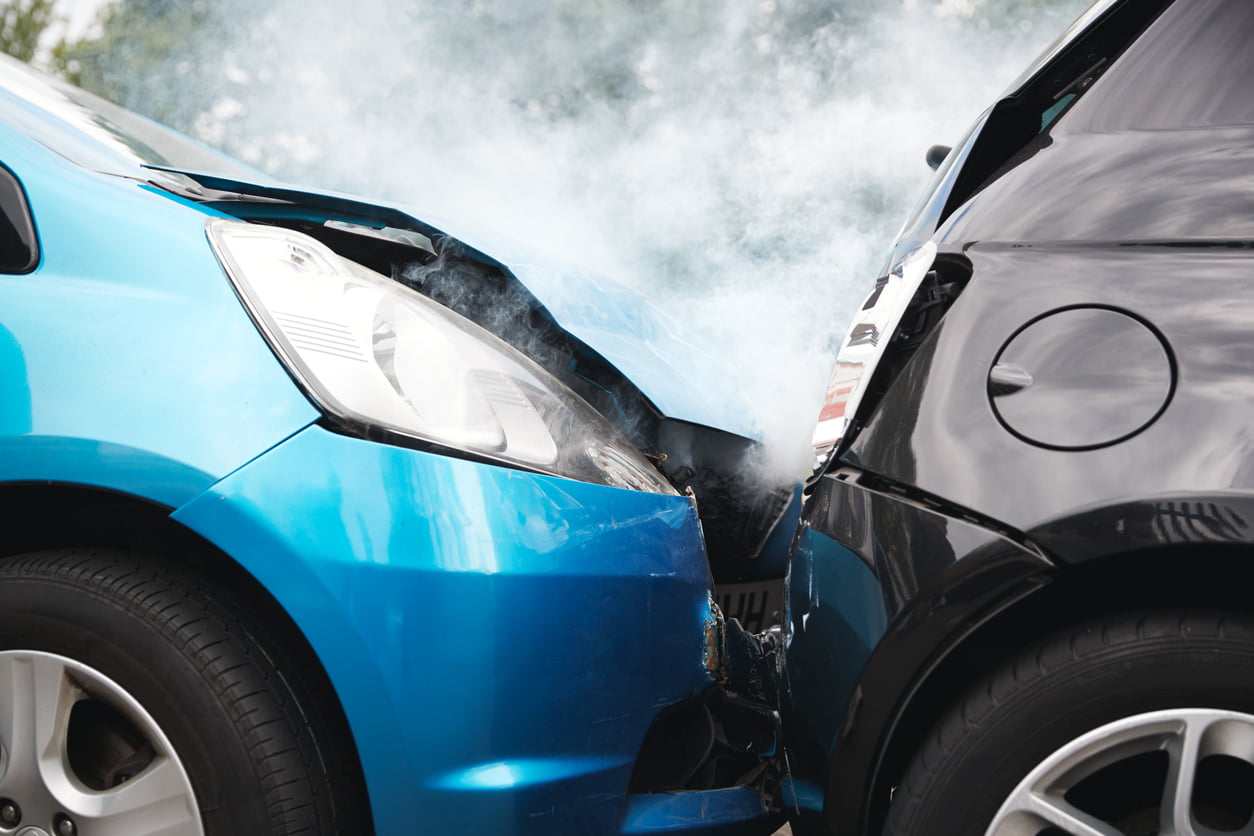Dealing with an accident can be a very stressful and traumatic experience. When you have been involved in a car accident and there are either property or personal injuries as a result, you may be required to file a claim. Your isure broker can assist you to ensure the best possible outcome but first, let’s discuss the procedure to file an auto insurance claim in Ontario.
Read your policy
As the law stipulates, it is mandatory to purchase automobile insurance for your vehicle in Canada. You may top up basic coverage for better financial protection by taking on additional liability coverage. It’s a good idea to sit down and thoroughly read your Ontario Automobile Policy (OAP 1). It provides specific details about your insurance coverage, your rights and your responsibilities under the contract. If you do not have a copy of the OAP 1, ask your insurance agent, broker or claims adjuster for a copy. They will be able to walk you through the document so that you can understand your coverage.
Notify your isure broker
It is best to call your insurance broker immediately after the accident has occurred. Let them know what happened and ask for next steps as it is the role of your broker to help you. You must submit a report within seven days, ideally 24 hours. If this is not done within a reasonable amount of time, your insurance company may not honour your claim.
Does the accident need to be reported to the police?
By law, it is required that a collision be reported to police. The 9-1-1 dispatch operator will assess the details and dispatch the police if:
- There are injuries
- The damage to any of the vehicles exceeds $2,000
- You suspect that any of the other drivers involved may be driving under the influence of drugs or alcohol, in which case they would be guilty of a Criminal Code offence.
If none of the above criteria apply, it is considered a minor accident. For minor accidents, call the nearest Collision Reporting Centre in your area and have your vehicle assessed.
What information does your insurer require?
Once your claim is reported, you will be contacted by the claims adjuster assigned to your file. Your claims adjuster will determine the extent to which the claim is covered by your insurance policy, explain the coverages provided by your policy and help guide you through the entire claims process. In some cases, the adjuster will want to meet with you in person; usually the entire claim will be handled over the telephone.
To support your auto insurance claim, you may also be required to complete a claim form, also known as a “Proof of Loss” form (a sworn statement in support of your claim). A proof of loss should be filed within 90 days of the collision, and will most likely include:
- Insurance information: The policy owner’s name and policy number.
- Information on your car: Include the year, make and model of your vehicle.
- Accident details: Provide all the information that you have written down and/or can remember. Be sure to have the exact date, time and location of the accident. Provide the number of passengers involved and the extent of any injuries suffered. Notify your broker if you are in possession of photographs of the scene of the accident.
- Other driver’s information collected at the scene: Present their driver’s licence, insurance and licence plate information.
- Reporting officer information: Have the name and badge of the reporting officer if one attended the scene of the accident.
What happens if you don’t report a car accident?
Remember, not filing a claim or a delay in filing a claim within a reasonable timeframe may affect the claim outcome overall.
It is important to note that the other party involved in the accident may report the accident later on and also file a claim against you. This could affect your insurance premiums once the car accident shows up on your driving records, causing them to increase. By not informing your insurance broker of the accident, it will also be considered a non-disclosure, which may affect your policy renewal. Therefore, it is recommended to file an auto insurance claim in Ontario so that you have the best result for your claim.
What happens after the auto insurance claim is filed?
Once you file the claim with your insurance company, the claim is processed leading up to an eventual settlement. How your insurance investigates the claim varies depending on the following factors:
- The nature and extent of the accident
- The accident policy of your insurance company
- Whether the accident involved injuries, property damage or both
Will my insurance go up after a car accident?
If you are found at-fault, you can generally expect your premiums to go up. There are exceptions, however, including if you have accident forgiveness on your policy. This means they typically waive a first-time accident.
Whenever there is a collision, someone is always considered to be ‘at-fault’ – fully or partially. Assessing at-fault accidents helps insurance companies determine accident coverage rates for each driver, which helps keep your premiums lower when you renew your policy. Insurance companies use At-Fault Accident Determination Rules to determine who bears fault and how much, so that all accidents are assessed fairly.
In Ontario, no-fault insurance means you’ll deal with your own car insurance company for claims. Your report, along with the police report, are critical components to assigning fault. However, your insurance company will have the final say. Know that you can be found partially at-fault, meaning anywhere from 0% to 100% at-fault in a collision.
What types of claims increase insurance premiums?
If you are a careful driver and observe the laws of the road, you will be less likely to have an accident, maintain lower premiums and have a successful claim settlement.
However, driving in an illegal and/or unsafe manner is one of the main reasons your auto insurance claim may be denied. In some instances, you risk having your policy canceled, as well. If it is determined that you were violating the law when the damage was done to your vehicle, you would face increased costs to your premium.
By driving carefully, you can avoid the negative effects of claims while keeping rates affordable.
What to expect if your vehicle has been damaged
The amount you receive for your damage claim will depend on the determination of fault placed on you for the damage, as well as the type of coverage you purchased.
Repair expenses will be covered by your insurance company until the fault is determined. There will be negotiations that take place afterwards with the other driver’s insurance company to decide who will pay. If the other driver is responsible for the accident, your insurance company will seek payment from their insurance company through a process called subrogation.
Will my insurance cover a rental vehicle?
It depends. It is best to ask your isure broker if you’re covered before renting a replacement vehicle. If the other driver’s insurance company accepts complete fault for the accident, you will be entitled to a replacement vehicle while yours is being repaired (without paying out-of-pocket.)
However, if you are found to be partially or completely at-fault for the accident and did not purchase optional Loss of Use (Transportation Replacement) coverage, the cost of a rental vehicle may not be fully covered.
Speak to your isure broker regarding your specific situation; they should be able to outline coverages that are available to you, as well as any deductibles that may apply.
Repair your vehicle or declare it a total loss
When you make a claim for damages to your vehicle, your insurance company will pay the lower of the following:
- the cost to repair the loss or damage, or
- the “actual cash value” of your vehicle at the time it was damaged.
Note: Some car owners have had work done on their vehicles to increase their appearance and/or performance. If you’ve recently completed work on your vehicle that you think would increase its actual cash value, tell your claims adjuster. They ask you to provide receipts to help the insurance company determine an adjusted cash settlement.
Remember: Your insurance company takes the deductible specified on your Certificate of Automobile Insurance into account. They will not pay more to repair your vehicle than its actual cash value (minus the deductible) at the time it was damaged. If repairs to your car would cost more than the actual cash value of the vehicle, it wouldn’t make financial sense for insurers to pay for repairs and would be considered a total loss.
Insurance companies employ claims adjusters to assess your vehicle. Once the adjuster writes off the automobile as a total loss, it is labeled as salvage. The cash value is determined by the make, model, mileage and conditions. Next, it will be auctioned off for its salvage value. In most cases, it will be your responsibility to purchase a replacement vehicle.
If you have been in an accident and you wish to submit a claim, remember you are not alone. Your isure broker can help walk you through your policy coverage to resolve your claim and get you back on the road as soon as possible. For more information, visit our website or contact an isure broker today.




